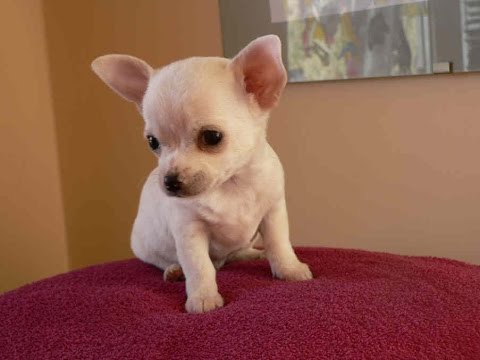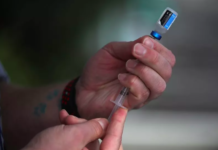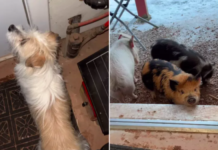Last Updated on February 23, 2024 by Fumipets
Six-Week-Old Chihuahua
When you hold a newborn Chihuahua in your hands, it’s like holding fine porcelain. Because this breed is naturally thin and delicate, you may be wondering how you can keep your new puppy healthy. Fortunately, if you prepare yourself by following a few basic measures, it’s not a tough job.
Supplies
Before you bring your new Chihuahua to your house, get some essential necessities for him. Instead of continually rushing to the shop to buy something you forgot, you can spend more time with him. All you’ll need is a small kennel, bowls, high-quality wet and dry food, as well as a collar and leash. If you wish to have a restroom space inside, you may purchase bathroom materials like newspaper or an absorbent pad.
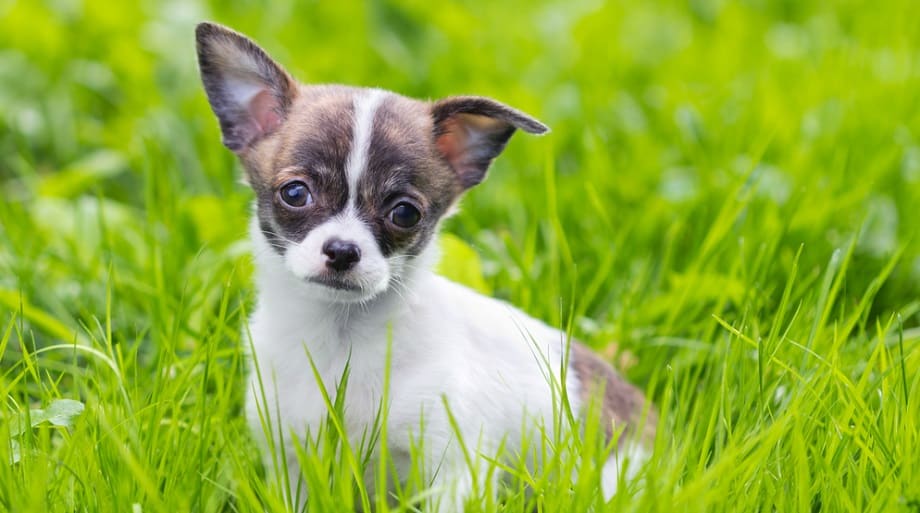
Acclimation
Chihuahuas are prone to being anxious. Isolate your puppy from any other animals in the house in a calm location when you first bring him home. Ensure that he has constant access to his food, drink, and toilet facilities. Pick him up and take him past your other pets, who will undoubtedly be interested in their new potential companion. Over the course of a few weeks, gradually expose him to your animals. You may relocate his kennel, food, and toilet place to a more convenient position after everyone is comfortable.

Health
During the first several weeks after your puppy arrives, keep a careful eye on him. Young Chihuahuas are prone to hypoglycemia, which is exacerbated by the stress of a new home. According to Blueboy Chihuahuas, puppies between the ages of six and ten weeks are the most susceptible to hypoglycemia. Missing meals may cause muscular spasms, unconsciousness, and convulsions by lowering his blood sugar levels. If he loses consciousness abruptly, dab a little corn syrup on your fingers and swirl it over his gums and mouth, immediately get him to the vet. If he begins itching or has stomach issues, take him to the doctor for a checkup.
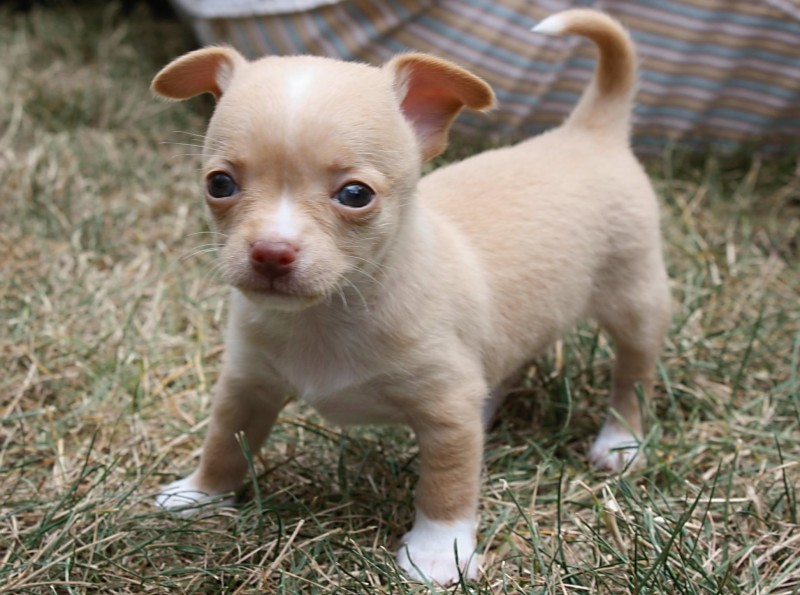
Feeding
According to Happy Trail Chihuahuas, feed your newborn Chihuahua four times a day until he’s three months old, then reduce it to three meals. Consult your veterinarian about your dog’s wet and dry food options. Many Chihuahua owners feed their dogs wet food on occasion to help them to gain weight. Consult your veterinarian about your dog’s nutritional requirements on a regular basis. Chihuahuas often suffer from a lack of appetite, but overfeeding them may be dangerous as well.

Grooming And Hygiene
Inquire with your veterinarian about grooming equipment that is appropriate for your dog’s size. Because Chihuahuas are so little, it’s critical not to use a rough comb that may hurt his skin. Brushes with soft bristles work best, although long-haired Chihuahuas may need something a little more flexible to remove mats. Brush your Chihuahua’s teeth on a regular basis and take him to the vet for an annual dental exam. To avoid dandruff and skin issues, give your puppy a bath using a dog-safe shampoo.
https://www.youtube.com/watch?v=4A0sCCq3t_E

